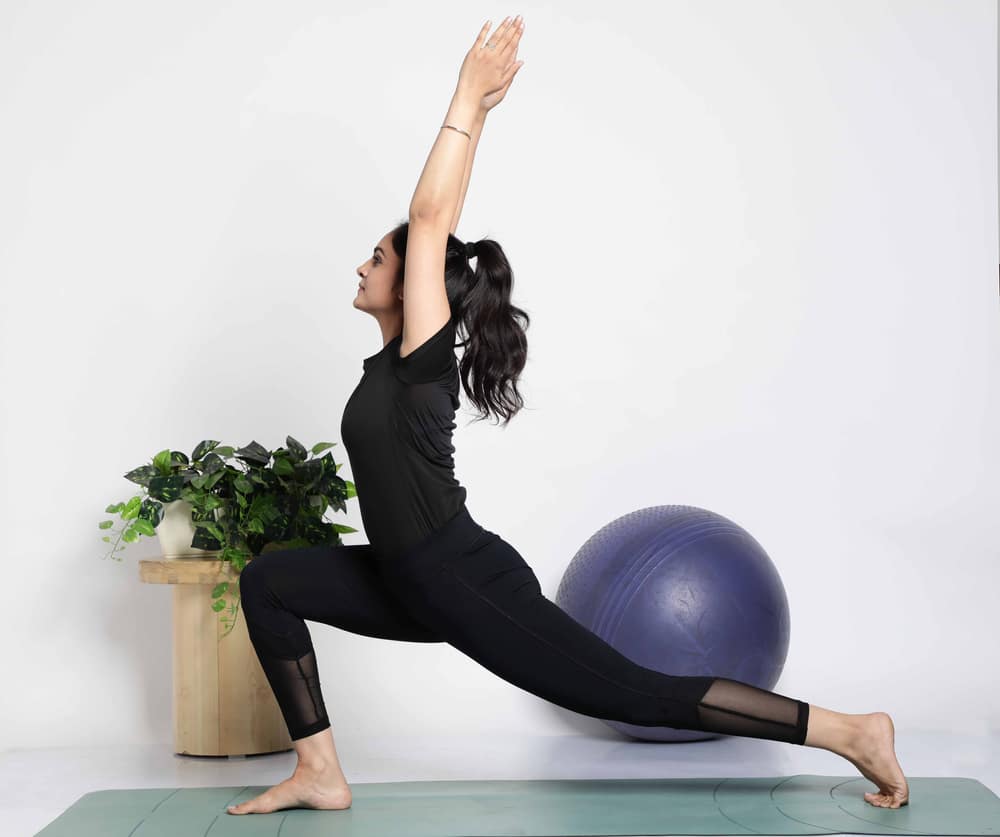Diet And Lifestyle Changes You Should Follow To Perform Better In Exams
Giving exams is a crucial turning point in a student's life, and performing well requires you to take care of both diet and lifestyle. In order to enhance your focus and concentration during this critical period, it's essential to implement certain dietary and lifestyle changes if you haven't already done so.

Dietary Tips For Exam Preparation
Here are some dietary tips that you can follow while you prepare for one of the most important phases of your life.
Mindful Snacking
During exams, students may experience hunger pangs due to long study hours, making it important to choose suitable snacks that promote an active and alert mind for optimal focus. One recommended snack option is a trail mix consisting of nuts, seeds, and dried fruits, while roasted snacks such as fox nuts, peanuts, channa, or fresh coconut slices also serve as excellent munching options. As much as your hands may reach out to carbs, avoid snacking on biscuits, chips, namkeens, etc. because they are high in sodium and sugar. This will lead to an instant rise in blood sugar levels followed by a sudden drop, making you feel sleepy and low on energy.
Stay Hydrated
This is crucial for students, and it's recommended to consume atleast 8-9 glasses of water daily, based on one's body requirements. As the brain is 75 per cent water, proper hydration can significantly enhance focus and concentration. Dehydration, on the other hand, can lead to poor brain function, resulting in decreased alertness and problem-solving abilities. To keep hydrated, one can not only drink plain water but also enjoy infused drinks like mint, lemon, and cucumber (especially during the summer) or herbal teas like lemongrass tea, green tea, jasmine tea, etc. These beverages can be consumed along with the aforementioned snacks.
 It's Recommended To Consume Atleast 8-9 Glasses Of Water Daily
It's Recommended To Consume Atleast 8-9 Glasses Of Water Daily
Timely Meals
Studying for too long at a stretch can take you past your meal time sometimes. So, it is very important to set reminders to have your meals on time. Irregular meal timings can lead to drowsiness and hinder study sessions. When meals are missed or delayed, energy levels fluctuate, leading to sudden spikes and drops in energy. Consequently, students may feel sleepy and low on energy. However, having meals at fixed timings enables the body to function systematically, providing consistent energy levels and necessary nutrients to nourish both the body and brain.
Also Read | Tips To Deal With The Stress Of Navigating Through College Admissions
Balanced Diet
Nutrition is extremely important for our body as well as our brain. When it comes to students, their diet plays a major role in helping them excel in their academics. A balanced diet is crucial during exams as it provides the necessary nutrients and energy needed for the brain and body to function optimally. Vitamins and minerals, found in fruits and vegetables, play a key role in maintaining optimal brain function. A balanced diet can help students stay alert, focused and energised during their exams, improving their academic performance.
Lifestyle Tips For Exam Preparation
Other than dietary changes, you must look into your lifestyle and do what needs to be done, to focus better on your studies. Here are some lifestyle tips that you can inculcate in your exam days as well as in your general daily life.
Keep Moving
Continuous studying in a single posture can lead to backache, stiffness in the body and weight gain, thus making you feel uncomfortable and out of focus, especially in the exams. One way to avoid this is to set up a reminder that keeps you active throughout the time you sit for studies. Lack of physical activity can pose several health risks, including the development of medical conditions such as heart problems, obesity, and hormonal issues, which can occur as early as teen years. These issues can adversely impact both health and studies, and may not be discovered until later on. Thus, it's essential to stay physically active to prevent these health issues and promote better focus and concentration during exams.
Exercise Everyday
In the era of mobile phones, laptops, and reading screens, physical activities have taken a back seat. Unlike in the past, where studying and playing had a fixed time slot, the pervasive use of gadgets has led to a lack of physical activity. However, it's important to maintain an exercise routine or engage in outdoor activities to improve cognitive functions and enhance memory. Physical activity triggers the production of certain chemicals in the brain, making it more productive and sharper, especially during study time. Therefore, it is recommended to engage in at least 30 minutes of physical activity, whether it be a brisk walk, a sport, or any outdoor game, to perform better during exams.
 It's Important To Maintain An Exercise Routine To Improve Cognitive Functions
It's Important To Maintain An Exercise Routine To Improve Cognitive Functions
A Good Night’s Sleep
Sleep is a crucial aspect of a student's life, yet during exam days, many tend to sacrifice sleep for studying. However, both the quantity and quality of sleep matter for optimal performance. Sleep provides the necessary rest to the body and brain, resetting it for better focus during exams. Some students may function well on 5-6 hours of sleep, provided the quality is good enough to replenish their energy. To improve the quality of sleep, one can consume calming teas such as chamomile tea, and snack on nuts like cashews to curb hunger while studying at night. Additionally, practising meditation or listening to peaceful music can aid in better sleep. It's essential to maintain a balance in lifestyle and prioritise sufficient sleep, especially during exam periods, to enhance focus and academic performance.
Also Read | 7 Food Habits To Ditch For Better Mental Health
Mind Your Posture
Students often do not realise that they have been sitting in the same posture for hours, and sometimes even wrong postures like bent back on a chair or even on bed. It is extremely important to be aware of how you are sitting and for how long you have been in the same posture while studying. Exams bring pressure but the pressure your body brings due to wrong posture can lead to some serious problems too. Apart from moving after every short interval, you must sit in an upright position, on a comfortable chair with a study table or if not, then you can use a bed table to work on. Remind yourself of your posture and to stretch in between at regular intervals to avoid any issues such as back pains, cervical pains, etc.
Chesha Kukkar is a Chandigarh-based dietitian with extensive experience in the field, and has helped over 1600 clients of varying age groups in achieving their health goals. She holds a postgraduate diploma in Nutrition and Dietetics from Government Home Science College, Chandigarh and an internship from Government. Medical Super Specialty Hospital, Chandigarh.
Applications for Admissions are open.
As per latest syllabus. Physics formulas, equations, & laws of class 11 & 12th chapters
JEE Main Important Chemistry formulas
Get nowAs per latest syllabus. Chemistry formulas, equations, & laws of class 11 & 12th chapters
JEE Main high scoring chapters and topics
Get nowAs per latest 2024 syllabus. Study 40% syllabus and score upto 100% marks in JEE
JEE Main Important Mathematics Formulas
Get nowAs per latest syllabus. Maths formulas, equations, & theorems of class 11 & 12th chapters
